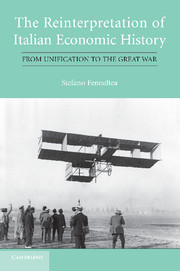Book contents
- Frontmatter
- Contents
- List of Tables
- List of Figures
- Acknowledgments
- Preface
- Introduction
- 1 The Time Series and the Interpretations
- 1A The Measurement of Production Movements
- 2 The Investment Cycle
- 3 The Consumption Cycle and the “Crisis” of the 1880s
- 4 Protection and Migration
- 5 Railways
- 6 North and South
- 6A North and South: A Sectoral Analysis
- 7 The State of Play
- APPENDICES: TARIFFS, TRADE, MIGRATION, AND GROWTH
- References
- Index
Introduction
Published online by Cambridge University Press: 05 March 2012
- Frontmatter
- Contents
- List of Tables
- List of Figures
- Acknowledgments
- Preface
- Introduction
- 1 The Time Series and the Interpretations
- 1A The Measurement of Production Movements
- 2 The Investment Cycle
- 3 The Consumption Cycle and the “Crisis” of the 1880s
- 4 Protection and Migration
- 5 Railways
- 6 North and South
- 6A North and South: A Sectoral Analysis
- 7 The State of Play
- APPENDICES: TARIFFS, TRADE, MIGRATION, AND GROWTH
- References
- Index
Summary
Of failure and success
Italy is again rich. It had been rich in ancient times, in the centuries of Rome's hegemony and the pax romana. From the collapse of the West Italy recovered sooner and better than anyone else: in the reborn medieval economy of the new millennium Europe's leading maritime, commercial, financial, finally even manufacturing powers were all Italian. For many centuries, again, Italy was rich.
That primacy was not maintained. Italy was still prosperous in the sixteenth century, the siglo de oro of the Iberian nations that conquered the ocean sea. But by the seventeenth century naval and commercial leadership, and financial hegemony, had passed to the Dutch; England then wrested these from the Low Countries, and in the eighteenth century it was challenged only by France, by then Europe's leading manufacturer. Italy became peripheral, underdeveloped, an importer of the manufactures and commercial services it once exported.
In the nineteenth century Italy fell further behind the leaders. The Napoleonic wars had confirmed England's naval, colonial and commercial preeminence; and England pioneered the industrial revolution, the transition to the modern world of factories and machines, of sustained productivity growth, eventually of rising living standards even for the working masses. England was soon followed by her former colonies in America, and also, on the Continent, by Belgium, by Switzerland, and again by France, once more England's rival in the final triumph of European imperialism.
- Type
- Chapter
- Information
- The Reinterpretation of Italian Economic HistoryFrom Unification to the Great War, pp. 1 - 7Publisher: Cambridge University PressPrint publication year: 2011



